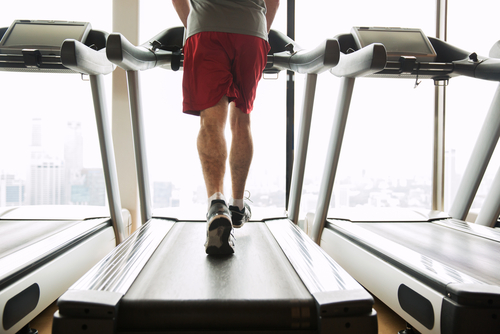By: Tayler Glenn
Post-workout recovery is an important part of your exercise regimen, but recovery advice is usually dominated by animal-based products. Those of us following plant-based diets are often asked whether we’re sure we’re getting enough protein by concerned family and friends. With as much worry is directed at those who follow alternative diets, the truth is that any diet can fuel your body for a workout if it’s balanced and planned with your body’s needs in mind!
If you’re someone who follows a plant-based diet, here are a few tips for athletic recovery:
Mind your Carbs and Protein
A 2016 study showed that cyclists consuming carbs and protein after an exhaustive workout recovered faster than those consuming only carbs.[1] Those who complete shorter workout benefitted more from more protein-focused recoveries. What does this mean for you? Unless you’re performing at a high level, it’s likely that your workout is between 30-60 minutes. This wouldn’t fall under the “exhaustive workout” category so focus on protein rather than carbs for your recovery.
For those eating an animal-based diet, meat and dairy contain a high level of BCAA’s or branched chain amino acids. Those following a plant-based diet should be sure they’re eating more protein to meet the same intake levels. Since the natural protein sources tend to be higher in carbohydrates, it is beneficial to supplement with a plant-based protein powder!

Don’t forget your vitamins
People are often low on iron and B-12 in their diets. The lack of these energy-producing nutrients can affect your mood, energy, and athletic performance. [2] You find iron in red meat but can be found in dark leafy greens and beans as well. B-12 is a vitamin commonly found in dairy and eggs. It can be harder to come by as it generally must be added to fortified plant-based products.
While there are a number of plant-based options that can supply these vitamins, it is still easy to find yourself low in these important areas. One sure-fire way to make sure you’re supplying your body with these energy-producing vitamins is by adding a multivitamin to your daily routine!

Focus on fats
Plant-based diets can sometimes lead people to eat too clean. Plants contain a number of vitamins, nutrients, and fiber. They also lack omega-3 fatty acids and simply don’t have the same number of calories as animal-based products. Without adequate calories or fats to help the body recovery optimally, you’re left feeling weak and prone to getting sick or injured.[1] These omega-3 fats need to come from the diet since the body doesn’t make them. While there are plant options, plant omega-3s are alpha-linolenic acids which the body only absorbs a small portion of. What this means for you is that you need to be consuming more to enjoy the recovery benefits. Try adding in a plant-based omega-3 supplement as well as flax or chia seeds to make sure your body can build and recover!
Do you follow a plant-based diet and live an active lifestyle? What do you do to make sure your body recovers? Tell us in the comments!
Resources:
1 Tips to Recover Faster From Exercise on a Vegan Diet
https://www.beachbodyondemand.com/blog/recover-faster-on-a-vegan-diet
2 5 Plant-Based Nutrition Tips to Help Recover from Workouts Faster
http://leanfit.com/recover-workouts-faster-plant-based-tips/





Comments (0)